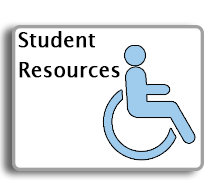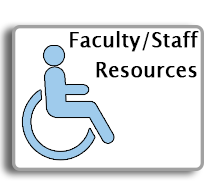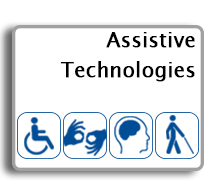What is Accessibility?
Accessibility, or Digital Inclusion, as it relates to web content, is defined as web design criteria which support access that is not dependent on a single sense or ability, such as vision or hearing. This includes course content in online and hybrid courses. as well Distance Education considerations. There are also links to pages that offer accessibility checks for existing web pages.
The Center for Instructional Innovation & Technology Services (CIITS) aids faculty with meeting accessibility standards in all content presented inside eCourses regardless of course delivery format. Accessibility and digital inclusion are considered synonymous at PVAMU.
This includes web page content and digital documents and media provided to students. Please refer to our accessibly checklist for details on how to ensure digital inclusion. You may also review Angelo State University advise on accessibility. For assistance please submit to our ticket system.
These standards are based on the Web Content Assistance Guidelines 2.1 on guidance in the Texas Administrative Code. eCourses is considered a web application under this code.
Why is Accessibility So Important?
Adhering to accessibly guidelines improves student success. The National Center for Education Statistics estimates that approximately 19% of undergraduate students have a disability. In higher education, students report disabilities at substantially lower numbers especially at HBCU’s. The ability to learn new material is a continuum and not a binary designation. Many students who do not officially qualify as disabled can benefit greatly from digital inclusion. The most common category of disability, cognitive, is generally invisible. This includes dyslexia, dyscalculia, dysgraphia, dyspraxia, ADD and ADHD.
Asynchronous internet (85% or more of the course is completed without instructor and students present in the same physical or digital space) and hybrid courses (including those that may have a synchronous online component or a face to face component, but does not meet synchronously – in person and online combined – more than 50% of contact hours) must meet these guidelines before internal QM approval is granted.
While all digital course content should adhere to these inclusion guidelines, those courses with students identified by the Office of Disability Services as needing special accommodation take the highest priority in adapting course content. Content must be remedied so that the student needing accommodation has access at the same time other students do.
Who Should Students Contact if they Have a Disability?
Students who self-identify as needing accommodation due to a disability should contact Office of Diagnostic Testing and Disability Services at (936) 261-3585 or email Belinda Lewis at bblewis@pvamu.edu. For more information, visit the Office of Diagnostic Testing and Disability Services website. Instructors should direct students to this office in the event a student identifies to you as needing assistance.
As of Fall 2021
Synchronous internet courses and face to face courses (web assisted classes) are also expected to meet the guidelines.
Since modifying content is intensive, it is not expected that all content be immediately remedied, but that a progressive continuous process remains in effect to bring all course material up to standards. PVAMU has adopted Ally inside of eCourses to assist with course remediation. Ally training began in Fall 2021.
For more information and resources regarding Digital Inclusion, click one of the buttons below.



